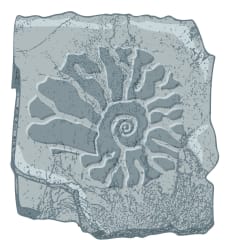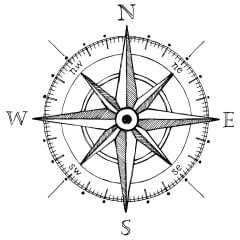Best Anthropology Careers
Anthropology majors gain many valuable skills over the course of their studies, but it is their sense of cultural awareness that sets them apart from other students. By the time they graduate, anthropology majors have learned about a wide range of cultures and an even wider array of cultural practices, beliefs, and social systems. They've practice opening their minds to new ideas and alternative ways of thinking, and have unpacked and examined many of their own culturally engrained ideas. This self-awareness, along with their understanding of the complexity of human social groups, prepares them well for any job involving other people—especially positions involving diverse or marginalized communities.
But not all anthropology students end up in socially-oriented jobs. Armed with strong research and analytical skills, a knack for communication, and an ability to think critically about the world around them, anthropology majors can thrive in many careers.
This article will be covering the following careers:
| Career | Avg Salary | Satisfaction | Your Match |
|---|---|---|---|
| Archaeologist | $42k | 3.7/5 | |
| Museum Conservator | $28k | 3.4/5 | |
| Archivist | $44k | 3.3/5 | |
| Cartographer | $68k | 3.2/5 | |
| Anthropologist | $70k | 3.6/5 | |
| Special Education Teacher | $55k | 3.1/5 | |
| Community Health Worker | $28k | 3.3/5 | |
| Translator | $44k | 3.2/5 | |
| Human Resources Manager | $71k | 3.1/5 | |
| Social Media Manager | $41k | 3.2/5 |
Are these careers suited to you? Our comprehensive career test measures your personality traits and interests and matches you to over 800 careers.
1. Archaeologist
Only a tiny proportion of graduates go on to become anthropologists or archaeologists, but those who do revel in it. As archaeologists, they'll have the chance to explore and uncover some of the oldest ruins on earth. They’ll investigate the commonalities that tie human cultures to one another and contribute to preserving ancient knowledge or cultural information.

Archaeologist
Archaeologists specialize in studying human history and prehistory through the analysis and interpretation of material remains left behind by past societies.
2. Museum Conservator
Conservators play an essential role in the life of any museum, documenting, preserving, and restoring rare artifacts and archaeological remains. Relying on their knowledge of past cultures, they conduct chemical and physical tests on items like prehistoric bones, ancient ceramics, or baroque tapestries to determine their age and make-up. They also assess what should be done to protect each artifact so that it can be enjoyed by museum visitors for decades to come.

Museum Conservator
A museum conservator is dedicated to the preservation and restoration of cultural artifacts and artworks housed in museums, galleries, historical sites, and other cultural institutions.
3. Archivist
Much like museum conservators, archivists are concerned with the preservation of the past. Meticulous and highly organized, these talented professionals can be found in hospitals, government organizations, universities, and many other institutions, working with an eclectic mix of documents, records, and other artefacts. Their duties include acquiring new collections, creating descriptions or labels, assisting visitors with research projects, and more.

Archivist
An archivist is responsible for the preservation, organization, and management of historical records and documents.
4. Cartographer
Map-making is just one of the many skills anthropology students master during their degree. Many go on to become excellent cartographers, applying their professional training to create detailed maps for book publishers, government organizations, universities, and other institutions. A highly social job, anthropology graduates can use their knowledge of cultures to collaborate with printers, editors, researchers, surveyors, and other professionals.

Cartographer
A cartographer specializes in the creation, design, and production of maps.
5. Anthropologist
Anthropologists are scientists who study humanity from a range of biological, linguistic, archaeological, and sociohistorical perspectives. Using techniques such as ethnography, participant observation, and participatory action research, they explore all aspects of humankind’s development. Most anthropologists work as faculty at universities or colleges, where they conduct research, publish papers and books, and teach courses on their favourite subject.

Anthropologist
An anthropologist is a social scientist who studies human societies, cultures, and their development throughout history.
6. Special Education Teacher
Although special education isn’t usually the first job that comes to mind when people hear the phrase “careers in anthropology,” it can be a natural fit. Special education teachers work with children who have developmental, attitudinal, or learning challenges, supporting them in all aspects of their personal, social, and educational growth. Why? By the time they graduate, anthropology students have developed an awareness of interpersonal differences, and have learned to adapt their own behaviours accordingly. With this valuable social skill under their belt, they can become empathetic, highly relatable special education teachers.

Special Education Teacher
A special education teacher is a teacher who helps students with disabilities learn and succeed in school.
7. Community Health Worker
While this job will require extra training, it can be a natural fit for a wellness-minded anthropology graduate. Community health workers possess a deep understanding of the community around them. They build strong social ties with the people they serve, using these close relationships to help guide clients toward the care facilities they truly need. Anthropology majors, with their sensitivity to cultural differences and diversity, are ideally suited to this important healthcare position.

Community Health Worker
A community health worker (CHW) acts as a liaison between community members and healthcare services.
8. Translator
The best translators do more than translate texts word for word. They also play an interpretive role, carefully assessing the many nuances and cultural meanings associated with each phrase in a text, then selecting the most appropriate way of expressing those ideas in another language. Success in this profession requires a strong understanding of people, cultural context, and social history, and an awareness that there are many different ways of seeing the world. For all of these reasons, anthropology majors are a perfect match.

Translator
Translators specialize in converting written or spoken content from one language to another while preserving its meaning, context, and nuances.
9. Human Resources Manager
Like anthropology, human resources (HR) is all about culture. HR managers strive to cultivate supportive, productive office cultures that allow staff to flourish personally and professionally. This can include hiring and training staff, organizing events to increase employee morale, and negotiating individual work terms so that everyone on the team feels as comfortable as possible. With their strong interpersonal skills and their problem-solving abilities, anthropology majors are ideally suited to advocate on behalf of their staff.

Human Resources Manager
A human resources manager is responsible for overseeing various aspects of an organization's human resources department.
10. Social Media Manager
Just like students of anthropology, social media managers spend many of their working hours exploring the cultural beliefs, behaviours, and interpersonal dynamics of different social groups. In this fast-changing and creative role, anthropology graduates can take their research skills outside of the classroom and into a fascinating online field work setting. They’ll identify digital communities or “tribes”, unpack their unique cultural ideas, then find the best language, platform, and strategies to connect with them.

Social Media Manager
A social media manager is responsible for overseeing and implementing an organization's social media strategy.